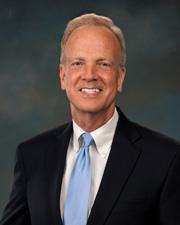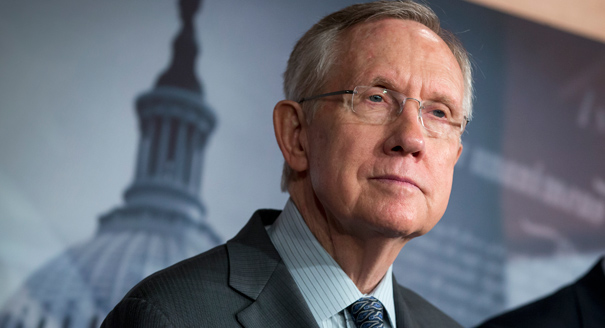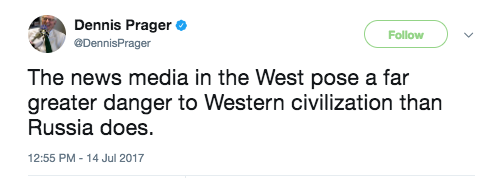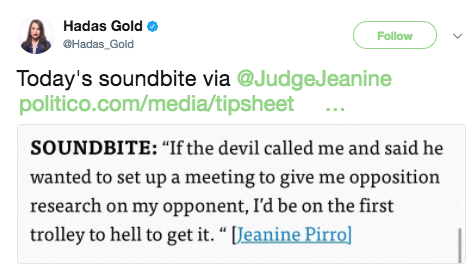I've been wondering lately: What would the world be like if Donald Trump was a good guy and not a man of such transparently ill character whose corruption and classlessness infects all around him?
A pause: I don't like attributing character flaws to people with whom I disagree. Usually, they're good — or good enough — people with different opinions! But with Trump, the crappiness of his character is key to the critique of him. It's unavoidable.
Let's apply the question to this week's big scandal — the newly reported meeting between Donald Trump Jr. and a Russian lawyer he thought might provide Russian government dirt on Hillary Clinton during the 2016 campaign.
If the people around Donald Trump had been both smart and patriotic, we wouldn’t be waking up this week to news that his son met with a Russian lawyer to dig up “dirt” in Hillary Clinton. We would’ve found out last summer — and it might’ve provided the boost he needed to win the presidency.
News of Trump Jr.’s meeting broke this week, adding to the appearance of a White House under siege and a legal noose tightening around the president’s inner circle. All of this — this part of the scandal, anyway — could’ve been avoided if the Trump campaign had just done two things:
• Called the FBI.
• Held a big press conference announcing why they’d called the FBI.
This approach would’ve had two advantages. It would’ve been the right thing to do. And it would’ve helped Trump look like a real American leader — someone selfless enough to sacrifice a possible advantage if taking that advantage meant doing dirty business with the country’s rivals.
There was precedent for this: Back in 2000, Al Gore’s campaign received a tape showing George W. Bush’s debate preparations — and promptly sent it along to federal investigators.
''I looked at it, and I said, 'I shouldn't have this and shouldn't be looking at this,''' said former Rep. Tom Downey, the Gore adviser who received the tape. ''I knew that it was serious stuff.”
Gore, of course, ended up narrowly losing the presidency. Trump narrowly won.
But imagine what our politics might look like right now if the Trump campaign called the FBI then held the press conference. Imagine the campaign bounce he might’ve received if he’d made a statement like, say, this:
"The Russians tried to give us damaging info on our opponent but even though that might have given us an advantage, it wouldn't be the right thing to do for our country. We are all Americans."
Trump still could’ve railed against “Crooked Hillary.” He still could’ve charged that her email setup as Secretary of State had made America less secure. But he could’ve put questions of collusion with Russia largely to rest, and — for once — maybe even made himself look a little more like a statesman instead of a two-bit schemer. “More in sadness than in anger” would’ve been a good look for a politician attempting to appeal to moderates.
That would’ve taken some imagination, though. That would've taken some moral fitness — or the smarts to
try to appear fit once in awhile.
Instead, the Trump campaign played to character, choosing to pursue the dumb, obvious, “let’s screw our enemies” power move. And when that didn’t work, he went public asking the Russians to release any info they had on his opponent.
The trouble with Donald Trump’s campaign and presidency, from the beginning, has been his inability to get out of his own way. His determination to avenge slights and be in control — but only in the most rudimentary fashion — led him to fire James Comey, to attack the “Morning Joe” crew, to slam veterans like John McCain and to pick fights with Rosie O’Donnell, to get his pound of flesh but to almost always get it in a fashion that leaves his presidency as collateral damage.
Given the choice between blunt-force trauma and the smart, silent shiv — or merely doing the right thing and being nice people — Trump and his minions choose blunt force every time. I'm not sure they're aware that different possibilities exist.
If Trump had tried to be a bigger, better man, he might right now have a bigger, better presidency. All he and his campaign had to do was the right thing. They didn’t. Of course they didn’t.
Cross-posted at SixOh6.



